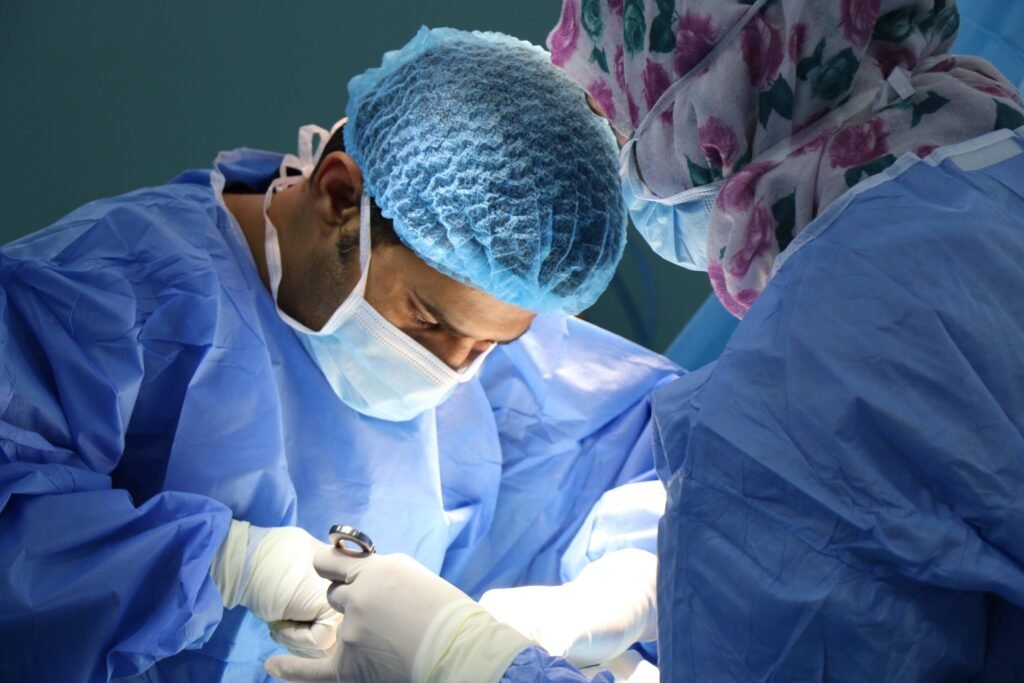South Korea has earned its reputation as a premier destination for medical tourism, especially in cosmetic and elective surgeries. One of the main reasons international patients choose Korea is its exceptional commitment to safety and hygiene during the entire surgical and recovery process.
Ensuring a clean, sterile, and secure environment is critical to preventing infections and complications after surgery. Korea’s medical centers go above and beyond global standards to protect patients, especially foreign visitors who may be concerned about unfamiliar health protocols.
Here’s a comprehensive look at how Korea maintains a safe and hygienic recovery environment for medical tourists:
🧼 1. Strict Sterilization Protocols in Clinics and Recovery Centers
- Routine sterilization of all surgical instruments, equipment, and surfaces using hospital-grade disinfectants
- Use of autoclave sterilizers to eliminate all bacteria, viruses, and spores on reusable instruments
- Disposable surgical materials and consumables used whenever possible to reduce contamination risks
- Daily deep-cleaning and air purification of recovery rooms and common areas
🩺 2. Regular Health Screening and Training for Medical Staff
- Mandatory health screenings and vaccinations for all clinical and nursing staff
- Continuous training on infection control, patient safety, and emergency procedures
- Strict hand hygiene protocols — including frequent handwashing and use of medical-grade hand sanitizers
- Use of protective clothing, masks, gloves, and face shields during patient contact
🚪 3. Controlled Access and Visitor Policies
- Restricted visitor access to recovery wards to minimize infection risk
- Screening of visitors and staff for symptoms or recent travel history
- Implementation of appointment-only visits and limited visiting hours during outbreaks or pandemics
- Designated isolation rooms for patients needing special precautions
🌬️ 4. Advanced Air Filtration Systems
- High-efficiency particulate air (HEPA) filters installed in operating rooms and recovery areas
- Regular air quality monitoring to maintain clean, allergen-free environments
- Negative pressure rooms available for patients with infectious risks
- Climate control to maintain optimal temperature and humidity for healing
🧹 5. Use of Single-Patient Rooms and Private Facilities
- Most recovery centers provide private rooms with en-suite bathrooms to reduce cross-contamination
- Single occupancy rooms minimize contact between patients
- Private nursing care reduces the need to move patients to shared spaces for monitoring
🧴 6. Comprehensive Waste Management
- Proper segregation, disposal, and incineration of biomedical and hazardous waste
- Regular audits to ensure compliance with environmental and health regulations
- Use of color-coded bags and containers for sharp instruments, contaminated linens, and medical waste
📱 7. Digital Record-Keeping and Monitoring
- Electronic medical records reduce paper handling and cross-contamination
- Use of remote monitoring devices to track vitals with minimal physical contact
- Contactless check-ins and payments to reduce touchpoints
🧪 8. COVID-19 and Emerging Infectious Disease Protocols
- Korea implemented one of the world’s most effective COVID-19 infection control programs in medical facilities
- Routine PCR and antigen testing of patients and staff
- Isolation and quarantine measures integrated into post-surgical care
- Enhanced cleaning, visitor restrictions, and PPE use during pandemic peaks
🌿 9. Integration of Traditional Korean Medicine with Modern Hygiene Standards
- Herbal therapies and acupuncture provided in clean, sterilized environments
- Use of disposable needles and sterilized equipment
- Strict hygiene protocols maintained even in complementary medicine practices
👩⚕️ 10. Patient Education on Hygiene and Safety
- Patients receive clear, multilingual instructions on wound care and infection prevention
- Guidance on hand hygiene, bathing, and dressing changes after discharge
- Access to 24/7 support lines for any concerns or emergencies
⭐ Real Patient Insight
“The cleanliness of the clinic and recovery center was impressive. Everything was spotless, and the nurses always wore fresh gloves and masks. I felt very safe during my recovery here.”
— Emma, UK
📝 Conclusion
Korea’s reputation for world-class medical tourism is built not just on surgical expertise but on an unwavering commitment to patient safety and hygiene. For medical tourists, this means recovering in an environment where every detail — from sterilization to air quality and patient education — is meticulously managed to minimize risks.
Choosing Korea for surgery means peace of mind that your recovery will be both safe and comfortable in some of the cleanest, most carefully regulated medical facilities in the world.




